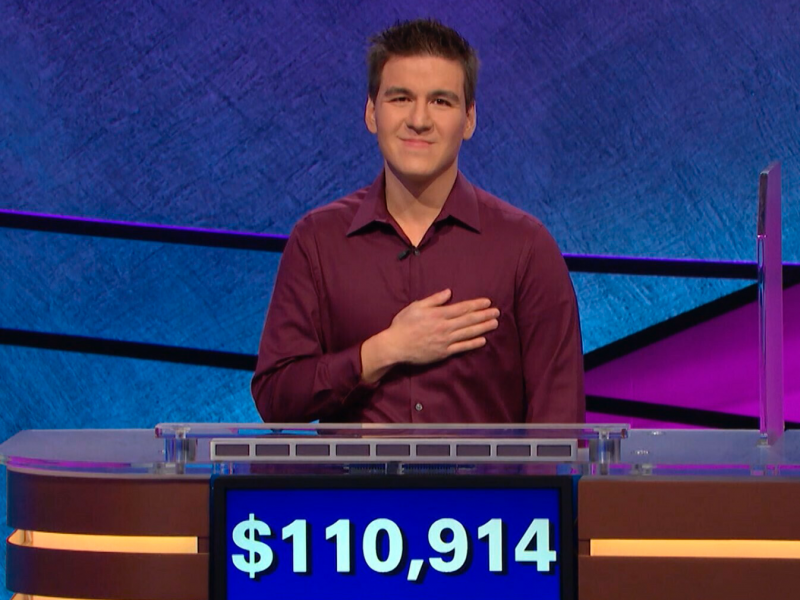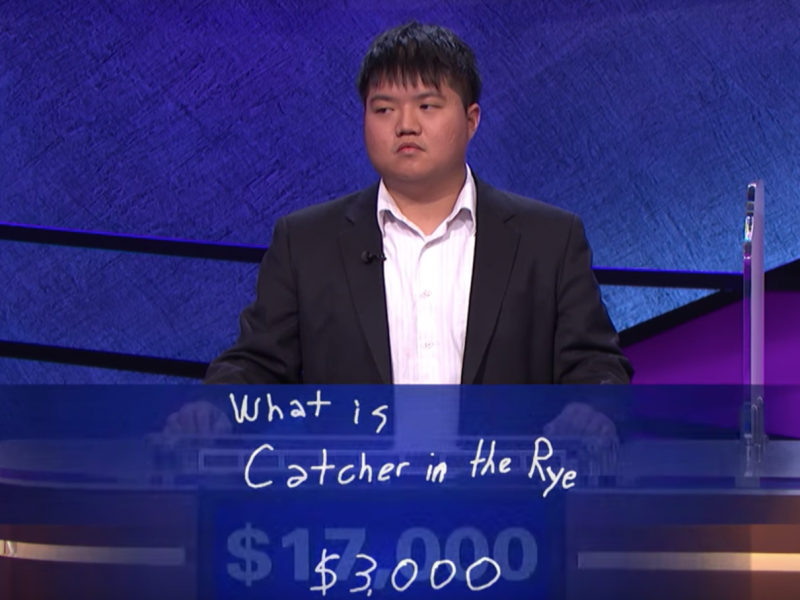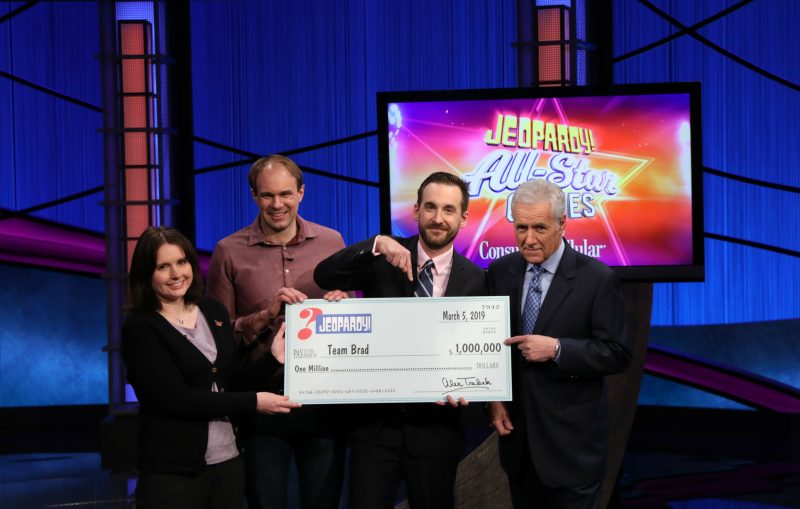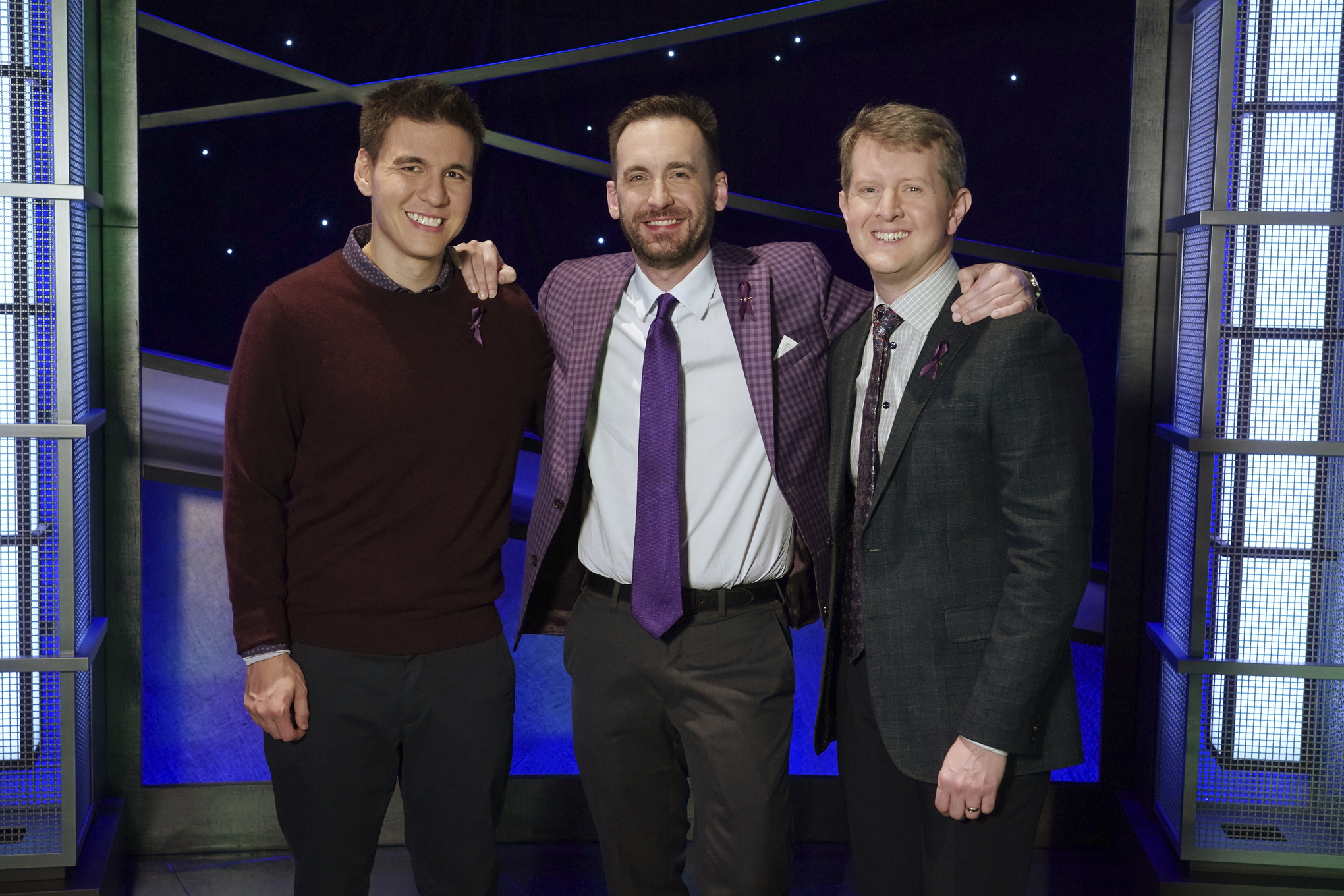- On Tuesday night, “Jeopardy!” will begin airing its “Greatest of All Time” tournament.
- The competition pits Ken Jennings, James Holzhauer, and Brad Rutter – arguably the three greatest players the game show has ever seen – against each other.
- In April 2019, James Holzhauer won more than $2.4 million during a 32-day winning streak.
- Rutter netted a total of $4.3 million across multiple “Jeopardy!” tournaments, while Jennings won 74 straight games in 2004.
- The champs’ high totals were, in part, the result of how they played the game – knowing when to hit the buzzer, how much to bet on Daily Doubles, and which clues to knock off the board first.
- Visit Business Insider’s homepage for more stories.
Making it onto the show “Jeopardy!” is challenging enough. Winning once you’re in the studio is even more difficult.
That is, unless you know how to play like “Jeopardy!”champions Ken Jennings, James Holzhauer, and Brad Rutter.
Tonight, ABC will begin airing the game show’s “Greatest of All Time” tournament, pitting the three dominant players against each other.
In April 2019, Holzhauer won more than $2.4 million during a 32-day winning streak. He broke the “Jeopardy!” record for the highest one-day total ever earned – $131,127 – on April 17. Rutter has netted a total of $4.3 million across multiple “Jeopardy!” tournaments, while Jennings won 74 straight games in 2004.
Episodes of the champions' "Jeopardy!" tournament will be aired from 8 to 9 p.m. ET on Tuesday, Wednesday, and Thursday. The episodes consist of a set of two back-to-back games, Vulture reported. The contestant with the most combined winnings from the two games is crowned the winner of each evening's match. The tournament will continue every night until a contestant wins three matches.
In other words, the greatest "Jeopardy!" player of all time will be crowned some time in the next week.
When they've competed in the past, the three contestant's high totals often had less to do with their trivia knowledge than with their game strategies.
Holzhauer's 'Jeopardy!' strategy

When he competed in April last year, Holzhauer made sure to hit the show's iconic buzzer at just the right moment. As The Ringer described at the time, Holzhauer reportedly grilled "Jeopardy!" producer Maggie Speak about the specifics of the buzzer timing in order to pinpoint precisely when the show's staff activates the switch that enables contestants to ring in after host Alex Trebek finishes reading a clue.
That timing is crucial - if a contestant hits the buzzer just a hair too soon, he or she gets locked out for about a quarter of a second, which tends to be enough for a competitor to get a buzz in edgewise, according to The Ringer.
What's more, Holzhauer went for the high-value clues first. He tended to answer these correctly, aggregating a lot of money very quickly in the game. Then when he came across a Daily Double, he bet big, often doubling his total.
Even with these tricks, however, there's no question that Holzhauer's foundation of superior trivia knowledge helped him win again and again. On April 17, when he broke his own one-day winnings record, Holzhauer played a perfect game. In "Jeopardy!" terms, that means he was correctly responded to every one of the 41 questions he buzzed to answer. In fact, he gave the right answer to every question he buzzed in for in 11 of his 33 games.
Overall, when he buzzed in, Holzhauer answered correctly 97% of time during his run.
Holzhauer holds the top 10 slots in the "Jeopardy!" rankings for single-day winnings; he obliterated the $77,000 record set by Roger Craig in 2010. According to the New York Times, Holzhauer won an average of $77,000 per game, more than double Jennings's rate. He also sits in second place for longest winning streak and all-time regular-season earnings, behind Jennings.
Midway through Holzhauer's run, Jennings gave him some kudos on Twitter. "This is absolutely insane. I've always wanted to see someone try 'Jeopardy!' wagering this way who had the skills to back it up," Jennings tweeted.
Using game theory to bet on Final Jeopardy
Holzhauer isn't the only famous "Jeopardy!" champion who's gamed the game - Arthur Chu, a 35-year-old columnist from Albany, New York, had an impressive 11-day winning streak in 2014. Chu had only netted a comparatively meager $298,200 when he was dethroned, however.

Chu's goal wasn't to win the most money per day. Rather, he used game theory to give himself the highest probability of being able to return to the show the next day to play again.
He achieved this by modulating the way he placed his Final Jeopardy bets. Instead of betting to win, Chu purposefully wagered an amount that would result in a tie if both he and his trailing competitor correctly guessed the Final Jeopardy clue.
Leading contestants often bet $1 more than the tying wager. But in the event that they get the clue wrong and their opponents get it right, sometimes that means losing the game by just $1.
There were a few instances in which Chu wagered to tie when he didn't have to, and both he and his competitor moved on to the next day of play. To Chu, that's better than risking a loss.
He said he nicked this strategy from Keith Williams, a former "Jeopardy!" champion who now runs "The Final Wager" blog.
The hunt for Daily Doubles
Chu was also good at scouring the board for Daily Doubles. He consistently selected higher-value clues from the bottom of the board, bouncing from category to category to do so. In the Jeopardy annals, this is known as "The Forrest Bounce," after former champion Chuck Forrest, who utilized the technique.
Bouncing from category to category has the added benefit of throwing off opponents who may have hit their stride in a single category.
When Chu came across a Daily Double in a category he knew nothing about - "The Sports Hall of Fame" for instance - he bet small. Pitifully small.
That way, even though Chu answered a sports question incorrectly, he only lost $5 and was still able to prevent his competitors (who might have more sports know-how) from getting the opportunity to bet big with the correct answer.

Holzhauer also employed the strategies of hunting for Daily Doubles and bouncing between categories.
Now, Holzhauer gets to palm the buzzer again and pit his strategies against those of Rutter and Jennings.

